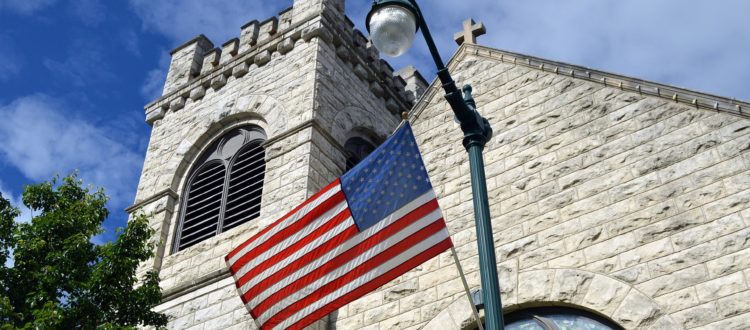Reviewing Denominational Stances on the Separation of Religion & State
Jews for a Secular Democracy is a pluralistic initiative of the Society for Humanistic Judaism to mobilize all Jews to work to keep religion and government separate.
Many Jewish denominations have issued statements calling for the separation of religion & state. Take a look!
Humanistic Judaism:
“The Society for Humanistic Judaism (SHJ) vigorously supports the Johnson Amendment as fundamental to American democracy and the separation of church and state. The Johnson Amendment prohibits 501(c)(3) nonprofit tax-exempt organizations, including churches and synagogues, from “directly or indirectly participating in, or intervening in, any political campaign on behalf of (or in opposition to) any candidate for elective public office.”
The underlying purpose of the Johnson Amendment is critical to secular democracy. If tax-exempt religious entities were allowed to participate in political campaigns and endorse specific candidates, then a church, mosque, or synagogue with a particular position could attract individual contributors looking for tax-deductible channels to support or oppose candidates. Further, a wealthy donor could promise a sizable donation but only on the condition that the non-profit or church endorsed a specific candidate.
As Secular Humanistic Jews, we believe the current ban on electioneering from the pulpit is central to the essential Constitutional principle of separation of church and state. The Constitution specifically designed our democratic government to be secular because only secular democracies allow freedom for a range of religious and other beliefs. Allowing religious organizations to endorse candidates – as opposed to voicing positions on issues, which they are entirely free to do – allows religion to intrude improperly into our Constitutionally-mandated secular governance, and undermines a core tenet of our functioning democracy. The SHJ therefore supports the continued prohibition of tax-exempt non-profit organizations from endorsing political candidates. The prohibition applies to both religious and secular non-profits, including the SHJ itself. We repudiate any calls for selective enforcement of this federal law, or for its repeal.”
Reconstructionist Judaism:
From a 2018 case, California v. Azar: “Reconstructing Judaism and the Reconstructionist Rabbinical Association signed onto an amicus curiae brief challenging religious organizations’ claim to be exempt from from providing, and empowered to block access to, women’s contraceptive services for their employees.”
Reform Judaism:
From a 1965 resolution of the Union for Reform Judaism: “The Union of American Hebrew Congregations has, throughout its history, steadfastly maintained the principle of separation of church and state, believing that the First Amendment to the Constitution is the bulwark of religious freedom and interfaith amity.”
The URJ later passed resolutions that opposed federal aid to private schools, prayer in school and tax-credits for religious private schools. In 1991, the URJ passed a resolution supporting the 1991 Religious Freedom Restoration Act. At the 2005 Biennial, the URJ passed a resolution specifically on engaging the religious right.
The Religious Action Center (RAC) of Reform Judaism also issued the following statement which Jews for a Secular Democracy has adopted as its Jewish Legacy Statement:
“There are many students of American Jewish life who believe that the struggle to expand separation of church and state in America is one of the greatest contributions Jews have rendered to the enlargement of American freedom.”
They also issued the following: “Only in America have Jews been free to pursue our faith and to organize our communal lives, equal under law and in practice, without government interference. Thus America—through its Constitution—created a system of religious liberty that has proved to be generally fair and effective, one that Jews wish to preserve. Jews have learned, through history that both religion and the state flourish best when they are separate.”
Conservative Judaism:
From a 2005 omnibus resolution of the Rabbinical Assembly: “WHEREAS the careful separation between the government and religious institutions or initiatives has historically led to the enjoyment by all peoples, including the American Jewish community for the past 350 years, of equal protection from religious coercion.”
And further [reaffirming 2002 statement on Civil Liberties]:
“BE IT FURTHER RESOLVED that the Rabbinical Assembly reaffirm its principles and resolutions maintaining the separation between government and religious bodies, the foundation upon which America stands.”
Orthodox Judaism:
“In America, the pro-life narrative is largely articulated by the Christian right, and there are important differences between how Judaism and Christianity view the span of time between conception and birth.”
Here is a wonderfully argued, well researched, Orthodox perspective on abortion by Ephraim Sherman that demonstrates the significant differences between the Jewish and fundamentalist Christian approaches to when life begins, and proves that the current so-called ‘heartbeat’ laws working their ways through state legislatures are in clear violation of the separation of church and state by privileging one religion over others: Click here to read!

